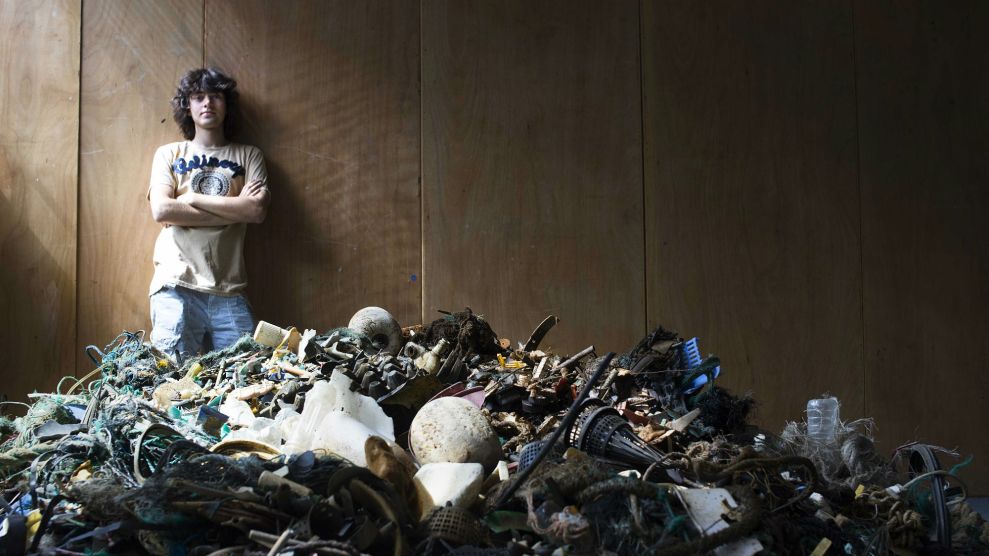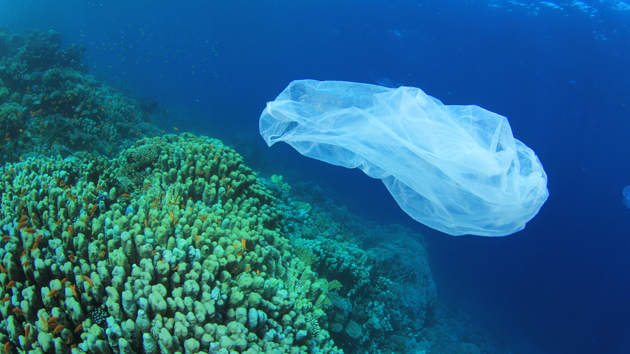This story was originally published by HuffPost and appears here as part of the Climate Desk collaboration.
In proclaiming June National Ocean Month, President Donald Trump called on the nation to “reflect on the value and importance of oceans” and “celebrate this immense natural resource.”
But this week, in the midst of that celebration, he signed an executive order to revoke Obama-era protections for US oceans, coastlines and Great Lakes waters. Trump’s directive focuses on energy extraction, fishing, trade and national security, further highlighting that he believes that the greatest value of federal lands and waters lies in the commodities that can be harvested from them.
“Ocean industries employ millions of Americans and support a strong national economy,” reads the order, which Trump signed Tuesday. “Domestic energy production from Federal waters strengthens the Nation’s security and reduces reliance on imported energy.”
Missing from the order are words like “conservation,” “stewardship” and “climate change,” as well as any mention of numerous other threats facing the world’s oceans, including plastic pollution, coral bleaching and acidification.
Signed in 2010 in the wake of the deadly Deepwater Horizon drilling rig explosion and oil spill, Barack Obama’s executive order established a federal policy for protecting, maintaining and restoring ocean health and biodiversity.
“America’s stewardship of the ocean, our coasts, and the Great Lakes is intrinsically linked to environmental sustainability, human health and well-being, national prosperity, adaptation to climate and other environmental changes, social justice, international diplomacy, and national and homeland security,” the Obama order states.
While the fishing and offshore energy industries celebrated Trump’s rollback, environmental groups and Democratic lawmakers were quick to blast the move.
Jacqueline Savitz, the chief policy officer for the nonprofit group Oceana, said the new order “undercuts important conservation measures needed to support strong coastal economies.”
“Every decision involving the ocean also affects fish, wildlife and water quality with resulting costs or benefits for coastal communities, fisheries and tourism,” she said in a statement. “We need strong national policies to help restore our fisheries and protect our oceans.”
In a Twitter post, Sen. Ed Markey (D-Mass.) called Trump’s declaration of National Ocean Month “a nice sheen” on an ocean policy that could lead to another massive oil spill.
Declaring June National Ocean Month is a nice sheen on Trump’s ocean policy, but between opening up 90% of our coasts to offshore drilling and now repealing the #NationalOceanPolicy, his admin is doing everything it can to allow another BP oil spill.https://t.co/LlAoUfVPIy
— Ed Markey (@SenMarkey) June 20, 2018
During National Ocean Month in 2017, Trump announced plans to withdraw the US from the Paris Climate Accord, signed by nearly 200 countries in an effort to help prevent global temperatures from increasing by 2 degrees Celsius, the magic number scientists say the world must stay below to prevent the worst effects of climate change.














